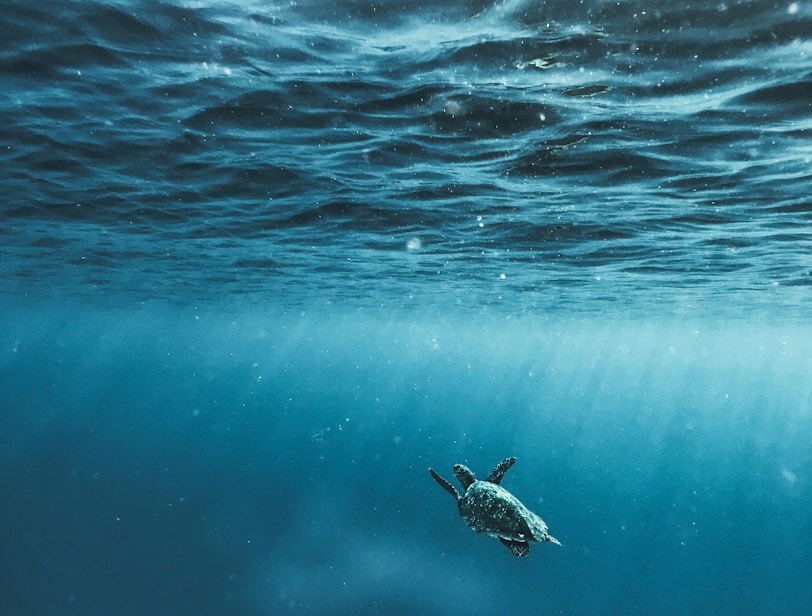Protecting Our Oceans: Preserving Marine Ecosystems and Ensuring Sustainable Fisheries
12/25/20233 min read


Introduction
Oceans cover more than 70% of our planet and play a crucial role in maintaining the balance of our Earth's ecosystems. They provide a habitat for a vast array of marine species, regulate climate patterns, and supply us with resources such as food and oxygen. However, our oceans are facing numerous threats, including pollution, overfishing, and habitat destruction. In order to protect our oceans and ensure their long-term sustainability, it is essential that we take action to preserve marine ecosystems and promote sustainable fisheries.
The Importance of Marine Ecosystems
Marine ecosystems are incredibly diverse and support a wide range of species, from microscopic plankton to large marine mammals. These ecosystems provide essential services, such as producing oxygen, absorbing carbon dioxide, and regulating climate patterns. They also act as nurseries for many commercially important fish species, supporting the livelihoods of millions of people around the world.
Additionally, marine ecosystems contribute to the overall health of our planet by maintaining the balance of nutrient cycles and providing coastal protection against storms and erosion. They are also a source of inspiration and enjoyment for millions of people who engage in activities such as swimming, snorkeling, and scuba diving.
Threats to Marine Ecosystems
Despite their importance, marine ecosystems are under threat from a range of human activities. One of the major threats is pollution, particularly from plastic waste and chemical contaminants. Plastic pollution poses a significant risk to marine life, as marine animals can become entangled in plastic debris or mistake it for food, leading to injury or death. Chemical contaminants, such as oil spills and agricultural runoff, can also have devastating effects on marine ecosystems, disrupting the balance of marine food chains and harming marine species.
Overfishing is another significant threat to marine ecosystems. Unsustainable fishing practices, such as trawling and dynamite fishing, can deplete fish populations and disrupt the delicate balance of marine ecosystems. This not only affects the fish species themselves but also has ripple effects throughout the food chain, impacting other marine species that depend on them for food.
Habitat destruction is yet another major threat to marine ecosystems. Activities such as coastal development, bottom trawling, and coral reef destruction can result in the loss of critical habitats for marine species. When habitats are destroyed, species lose their homes and sources of food, leading to declines in population numbers and a decrease in overall biodiversity.
Preserving Marine Ecosystems
In order to protect and preserve marine ecosystems, it is essential that we take proactive measures to address the threats they face. One of the key strategies is the establishment of marine protected areas (MPAs). MPAs are designated areas where human activity is restricted or prohibited, allowing marine ecosystems to recover and thrive. These areas serve as sanctuaries for marine species, providing them with a safe haven where they can reproduce and replenish their populations.
Another important step in preserving marine ecosystems is reducing pollution. This can be achieved through measures such as proper waste management, reducing the use of single-use plastics, and implementing stricter regulations on industrial and agricultural runoff. By minimizing pollution, we can help ensure the health and vitality of marine ecosystems.
Furthermore, sustainable fishing practices are crucial for the long-term health of marine ecosystems. Implementing measures such as fishing quotas, size limits, and gear restrictions can help prevent overfishing and allow fish populations to recover. It is also important to promote sustainable fishing methods, such as selective fishing gear and the use of fishery improvement projects, which aim to improve the sustainability of fisheries through collaboration between stakeholders.
Ensuring Sustainable Fisheries
Sustainable fisheries are essential for the long-term viability of our oceans and the communities that depend on them. By adopting sustainable fishing practices, we can ensure that fish populations are able to replenish themselves and support the livelihoods of fishermen for generations to come.
One key aspect of sustainable fisheries is the implementation of effective fisheries management systems. This includes monitoring fish populations, setting catch limits based on scientific data, and enforcing regulations to prevent illegal fishing. By effectively managing fisheries, we can prevent overfishing and ensure that fish populations are able to recover and thrive.
Collaboration between governments, fishing communities, and conservation organizations is also crucial for the success of sustainable fisheries. By working together, stakeholders can share knowledge and resources, develop sustainable fishing practices, and implement effective management strategies. This collaboration can help ensure that the needs of both the environment and the fishing communities are met, creating a win-win situation for all parties involved.
Conclusion
Protecting our oceans and preserving marine ecosystems is a global responsibility. By taking action to reduce pollution, promote sustainable fishing practices, and establish marine protected areas, we can ensure the long-term health and sustainability of our oceans. It is essential that we recognize the importance of our oceans and the role they play in supporting life on Earth. Together, we can make a difference and protect our oceans for future generations.
Contacts
hksvvv@gmail.com
